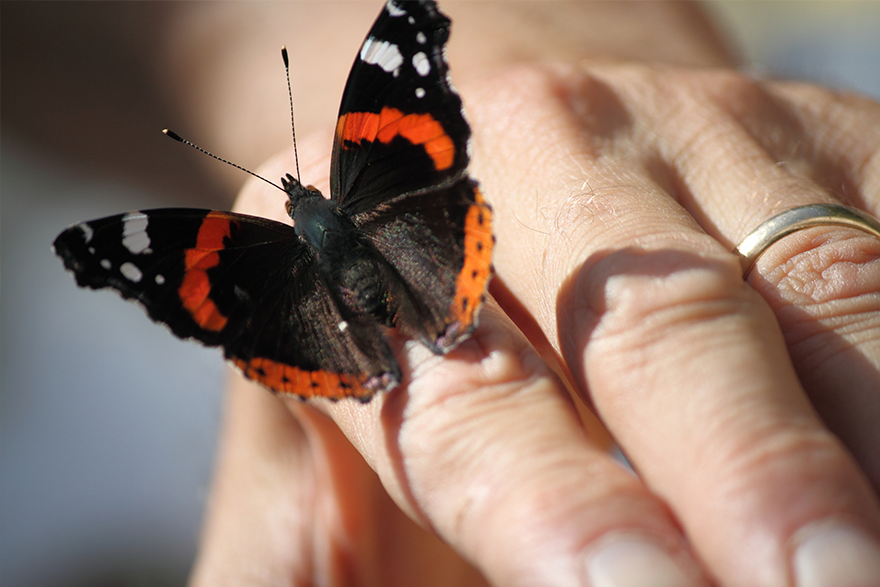The science behind a happier and healthier mind
We all want to build habits that make us happier and healthier. Yet, forming lasting change can feel like an uphill battle. Why does it sometimes feel so hard to break free from old routines and embrace new ones?
The answer lies in how our brains work. Neuroscience teaches us that creating new habits starts with rewiring the brain by forming neural connections through focused attention and consistent effort. The good news? By understanding neuroplasticity—your brain's natural ability to adapt and learn—you can use practical strategies to make change easier and more sustainable.
Reshaping habits takes time. In this article, we share ten brain habits to boost your wellbeing, and actionable tips you can start today to think clearer, feel better, and live with greater purpose. Ready to get started?
1. Keep your brain fuelled
Your brain thrives on energy, much like a car. When your brain's energy reserves are low, it becomes harder to make decisions, solve problems, or stay creative. When your brain is fuelled up, you can think clearly and be innovative.
Positive emotions play a significant role here, acting as your brain's fuel. Positive emotions release dopamine, a neurotransmitter that boosts focus, decision-making, and motivation. Experiencing positive emotions can also broaden our thought processes and build personal resources such as persistence over time[1], helping your brain to adopt new habits.
Try this: Identify your brain's peak energy times by noting when you feel most energetic and scheduling your most demanding tasks during those periods. When working with others, try kicking off meetings by sharing good news or positive reflections to set a collaborative tone.


2. Be intelligent with your emotions
Our emotions are powerful—they shape our actions, decisions, and relationships. Psychologist Paul Ekman found that emotions evolved as survival mechanisms, helping us sense what is important to us and preparing us to deal with significant events[2].
Yet, when the brain lacks sufficient energy to function at its best, we may act impulsively or fail to fully consider the consequences of our actions. This highlights how the same brain can operate differently depending on its energy state.
Emotional intelligence—the ability to perceive, use, understand and manage emotions thoughtfully—helps us stay balanced. Practising mindfulness can improve emotional awareness, giving you space to pause before reacting. This makes it easier to respond in ways that align with your values and goals, even during stressful moments.
Try this: The next time you feel stressed or uncomfortable during a conversation, pause for a moment and mentally label the emotion you're feeling—whether it's frustration, anxiety, or something else. Once you've named it, take three deliberate slow breaths before responding. This brief pause can give you the clarity and composure to respond with intention rather than impulse.
3. Care for your body
Your brain and body are deeply connected, and caring for your physical health is one of the best ways to boost your mental performance. Exercise, hydration, and quality sleep are essential for recharging your brain and keeping it sharp. Even small physical actions, like standing or stretching, can refresh your energy and improve focus.
Movement is particularly powerful. It releases endorphins, which naturally lift your mood and reduce stress[3]. Simple activities, such as raising your arms or bouncing lightly, signal happiness to your brain and create an instant emotional shift.
Try this: Your lymphatic system depends on movement to flush out toxins, as it is activated when your body moves, and gravity assists the process. Boost your energy and mood by bouncing or walking. Incorporate regular breaks to stretch and step outside to refresh both your body and mind.


4. Let your imagination wander
Imagination isn't just for artists and dreamers—it's a powerful tool for creativity and problem-solving. Neuroscience shows that we're most creative when we let our minds relax and wander[4]. This downtime allows your brain to connect ideas in unexpected ways, often leading to those "aha!" moments.
Positive emotions also enhance creativity by expanding your thinking and helping you see possibilities. Taking time to imagine isn't a luxury—it's a practical tool for innovation and fresh ideas.
Try this: Carve out a few minutes each day for creative thinking. Journal, doodle, or try a relaxing activity like gardening to let your mind wander. Take time to look at the clouds or gaze into space. Allow your mind to explore.
5. Stay curious
Curiosity helps you keep learning, which helps keep your brain active and engaged. According to researcher Todd Kashdan from The Well-being Lab, curiosity promotes resilience, reduces anxiety and defensiveness, sparks workplace innovation, and is a powerful buffer against life's stressors[5]. It encourages learning, exploration, and connection, making it a vital habit for personal growth and workplace innovation.
Try this: Practice curiosity by noticing new details around you. On your next walk, spot three things you've overlooked before, such as patterns in tree bark, sounds like rustling leaves, or a vibrant leaf on the ground. By intentionally tuning into these small details, you engage your curiosity into your day-to-day routine.


6. Practise gratitude
Gratitude is like a spotlight that highlights what's good in your life, even during tough times. It rewires your brain for positivity by strengthening connections in its reward centres, which boosts happiness and resilience. Studies show that regularly practising gratitude improves mood, relationships, and physical health[6].
By shifting focus from what's missing to what's abundant, gratitude can help you build emotional strength and find joy in the small moments of daily life.
Try this: Start a gratitude journal by listing three things you're thankful for, each evening. Share your gratitude with others over a meal or at the beginning of meetings. Send a gratitude text, card or video. These practices enhance your own wellbeing and strengthen your relationships too.
7. Smile more
Smiling is one of the most immediate and natural ways to shift yourself—and other people—into a positive mood. A genuine smile does more than light up your face; it shows you're friendly and open, encouraging the person you're smiling at to connect with you. It also triggers mirror neurons in both your brains, helping you share empathy and tune in to each other's thoughts and feelings.
Laughter takes this a step further, reducing stress and bringing people together. According to Robert Provine's research, laughter is part of our DNA, and people are 30% more likely to smile in social settings than when alone[7].
Try this: Start each morning with a smile in your mirror, and smile long enough for the positive emotions to kick in. Laughter, too, has positive effects. Even a single session of as little as a minute can help reduce stress by buffering cortisol levels[8], so find a way to enjoy a good laugh.


8. Strike a power pose
The way you hold your body shapes your mood, with posture influencing your emotional state and brain chemistry. Research has found changing our body posture can change how we feel by changing the chemical make-up of our body. These physical changes signal to your brain that you're in control and capable, improving clarity and decision-making.
Try this: Practice the "Superhero" pose before important tasks—stand tall with hands on hips for two minutes to feel empowered. Throughout the day, do quick posture checks to stay confident and energised.
9. Show kindness
Kindness is a happiness multiplier. Giving to others, whether through small gestures or thoughtful acts, boosts your mood and strengthens your sense of connection with others. Studies show that even counting acts of kindness can increase happiness and gratitude[9].
The beauty of kindness is that it creates a ripple effect, inspiring others to pay it forward and spread positivity.
Try this: Make kindness a daily habit. Surprise someone with a compliment, lend a helping hand, or do a thoughtful favour. For an extra boost, try five different acts of kindness in one day to keep the experience fresh and meaningful.


10. Be mindful
Mindfulness is about being fully present and aware of the moment without judgment. Ellen Langer's research shows that practising mindfulness increases openness, emotional regulation, and resilience. Even a few minutes of mindful awareness a day can reduce stress and improve focus.
By noticing and paying attention to what's around you, mindfulness helps you navigate life's challenges with more calm and clarity.
Try this: Dedicate time for mindfulness each day. Align mindfulness with daily tasks, such as eating or walking, by focusing entirely on the experience. Start small with five minutes of noticing the new things around you to build the habit gradually.
Your path to a healthier, happier mind
These ten brain-friendly habits are your toolkit for a healthier, happier mind. Start small and remember that consistently applying small habits makes a big difference over time. By weaving these practices into your daily routine, perhaps you can feel more focused and energised while building resilience to thrive through life's ups and downs.
At the Langley Group Institute, we ignite the potential within people, teams, and organisations through accredited, evidence-based, and practical courses in positive psychology and wellbeing science. Interested in learning more about our courses? Check out the 11069NAT Diploma of Positive Psychology and Wellbeing and the 11250NAT Certificate IV in Wellbeing Science.
References:
[1] Fredrickson BL. The role of positive emotions in positive psychology: The broaden-and-build theory of positive emotions. American Psychologist [Internet]. 2001 [cited 2025 Jan 20];56(3):218–26. Available from: https://peplab.web.unc.edu/wp-content/uploads/sites/18901/2018/11/fredricksonampsyc2001.pdf
[2] Ekman P. Universal Emotions | What are Emotions? | Paul Ekman Group [Internet]. Paul Ekman Group. 2019 [cited 2025 Jan 20]. Available from: https://www.paulekman.com/universal-emotions/
[3] Harber VJ, Sutton JR. Endorphins and exercise. Sports Medicine [Internet]. 1984;1(2):154–71. Available from: https://www.ncbi.nlm.nih.gov/pubmed/6091217
[4] Pacchioli D. Making Connections: Psychologist explores the neuroscience of creativity | Penn State University [Internet]. Psu.edu. 2020. Available from: https://www.psu.edu/news/research/story/making-connections-psychologist-explores-neuroscience-creativity
[5] Kashdan T. Curiosity [Internet]. Todd Kashdan. Available from: https://toddkashdan.com/curiosity/
[6] Emmons RA, McCullough ME. Counting blessings versus burdens: An experimental investigation of gratitude and subjective well-being in daily life. Journal of Personality and Social Psychology [Internet]. 2003;84(2):377–89. Available from: https://greatergood.berkeley.edu/pdfs/GratitudePDFs/6Emmons-BlessingsBurdens.pdf
[7] Scott SK, Cai CQ, Billing A. Robert Provine: the critical human importance of laughter, connections and contagion. Philosophical Transactions of the Royal Society B: Biological Sciences. 2022 Sep 21;377(1863).
[8] Kramer CK, Cristiane Bauermann Leitao. Laughter as medicine: A systematic review and meta-analysis of interventional studies evaluating the impact of spontaneous laughter on cortisol levels. PLoS One. 2023 May 23;18(5): e0286260–0.
[9] Emmons RA, McCullough ME. Counting blessings versus burdens: An experimental investigation of gratitude and subjective well-being in daily life. Journal of Personality and Social Psychology [Internet]. 2003;84(2):377–89. Available from: https://greatergood.berkeley.edu/pdfs/GratitudePDFs/6Emmons-BlessingsBurdens.pdf

